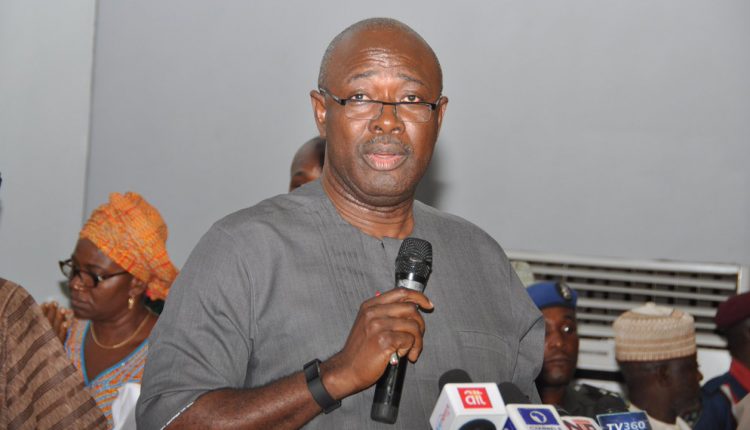According to Heineken Lokpobiri, Minister of State for Petroleum Resources (Oil), the Federal Government is dedicated to making sure that each barrel of crude oil produced in Nigeria adds significant value to the country’s economy both domestically and internationally.
As part of its push for energy self-sufficiency and sustainable economic growth, the government is giving priority to indigenous refining capability, the minister stated during Tuesday’s 2025 CORAN Summit in Lagos.
Ndah Adaba, his technical adviser, was present when Lokpobiri emphasized that enhancing domestic refining and guaranteeing energy security were essential to Nigeria’s long-term development objectives.
In order to discuss the continent’s path toward refining independence, engineers, investors, policymakers, and energy professionals from all over the continent convened for the summit, which had as its theme “Refinery Key to Energy Security in Africa.”
Through the Domestic Crude Oil Supply Obligation (DSCO), the Federal Government, according to Lokpobiri, is making sure that all local refineries with licenses have steady access to feedstock for their operations.
“The effective implementation of the Domestic Crude Oil Supply Obligation is facilitating the supply of crude oil to domestic refiners, going beyond licensing,” he stated.
In order to stabilize the market, he said, the “Naira for Crude” effort would continue to be essential in lowering the cost of producing fuel, minimizing exposure to fluctuations in exchange rates, and assisting domestic refinery operations.
According to the minister, “no country can claim energy independence without the ability to refine its own crude.”
Through the Nigerian Midstream and Downstream Petroleum Regulatory Authority (NMDPRA), the government has streamlined the refinery licensing procedure, according to Lokpobiri, who highlighted recent revisions.
He claims that the procedure, which includes the Licence to Establish, Licence to Construct, and Licence to Operate, has been simplified in order to remove red tape and attract reliable investors.
“This administration backs real investors who can produce outcomes, not those who profit from bureaucratic red tape,” Lokpobiri stated.
“Successes Are Found in Indigenous Refineries”
Aradel Holdings, Waltersmith Petroman Refinery, and Dangote Refinery & Petrochemical Complex were cited by Lokpobiri as examples of local success stories propelling Nigeria’s refining revival.
“Among the indigenous success stories we have witnessed today are Aradel Holdings, Waltersmith Petroman Refinery, and Dangote Refinery. They show that Nigerians have the ability and desire to process our petroleum locally,” he said.
Such projects, he said, “symbolize confidence in government policy direction” and are in line with President Bola Tinubu’s Renewed Hope Agenda, which regards domestic refining as a major factor in the development of jobs, energy independence, and industrial resurgence.
The West African Fuel Market is launched by Nigeria
The minister announced the Federal Government’s establishment of the West African Fuel Reference Market, an effort designed to establish Nigeria as the region’s center for petroleum distribution and refining, as a means of enhancing regional collaboration.
According to Lokpobiri, “Nigeria will be able to meet its internal demands and establish itself as a dependable supplier to neighboring countries with increased domestic refining capacity.”
In order to strengthen intra-African trade and lessen reliance on foreign refineries, the African Continental Free Trade Area (AfCFTA) framework and the African Union’s energy integration goals are in line with the plan, he said.
According to Lokpobiri, the Federal Government would prioritize feedstock security for all licensed refiners in the future while increasing financial incentives to draw in both domestic and foreign capital.
The Ministry of Petroleum Resources, NMDPRA, NUPRC, and security agencies are working together more closely to prevent pipeline vandalism, fight crude oil theft, and promote goodwill with host communities, he continued.
According to Lokpobiri, “our refineries and the institutions that support them are the first step towards Africa’s energy security.”
He called on African countries to strengthen their collaboration in areas like logistics, product trade, and shared energy infrastructure, stating that these alliances are essential to the continent’s efforts to become self-sufficient.
Nigeria’s imports of Premium Motor Spirit (petrol) have decreased to their lowest level in eight years as the downstream market is being reshaped by government reforms and increased local refining capacity.
According to a recent report by Argus Media, Nigeria got the lowest amount of gasoline shipments since 2017 in September, with 116,000 barrels per day (18.44 million liters) compared to 154,000 barrels per day (24.49 million liters) in August.
The reduction was ascribed by the report to ongoing maintenance efforts at the 650,000 barrels per day Dangote Refinery, which has temporarily curtailed operations, policy reforms, and better local output.
Despite a recent labor dispute between the Petroleum and Natural Gas Senior Staff Association of Nigeria (PENGASSAN) and the refinery’s management, observers say the ongoing decline in imports is a sign of increased trust in domestic refining and a slow transition to energy independence.

